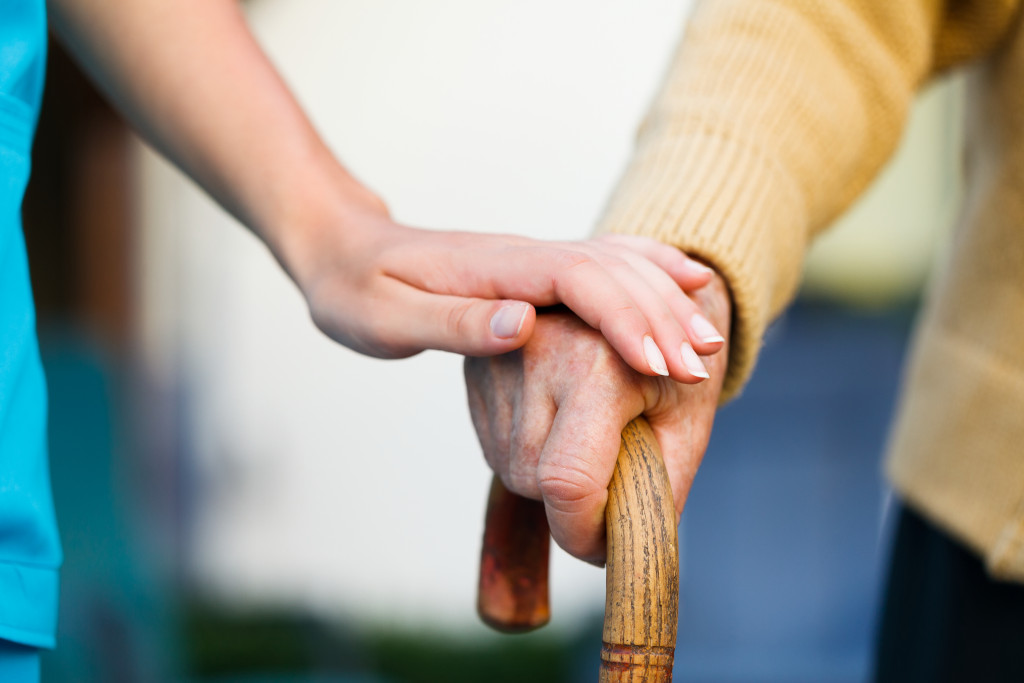Caring for a loved one suffering from Alzheimer’s can tax family and friends. It’s estimated that six million Americans have this disease. That’s why it is essential to understand the illness so that you can provide the necessary care and support. Here’s a look at how Alzheimer’s affects families emotionally and physically.
The Impact of Alzheimer’s Disease on Families
The most significant impact of Alzheimer’s disease on families is the emotional toll it takes. Watching a loved one forget memories, lose the ability to communicate, or undergo personality changes can be heartbreaking. The guilt that comes with feeling helpless to stop a loved one’s decline can also add to the emotional burden.
In addition to the emotional strain, caregiving for someone with dementia also puts physical stress on family members. For example, caregivers may need to lift their loved one out of bed or help them get dressed. They may also take time off work to provide care during the day or stay up late at night monitoring their safety. This physical strain can lead to exhaustion and burnout if not appropriately managed.
Managing Stress When Caring For Someone With Alzheimer’s
Caregivers need to recognize when they are feeling overwhelmed and take steps to manage their stress levels. The best way to do this is by creating a support system of family and friends who can help with caregiving duties when needed. It is also helpful for caregivers to reach out for professional help, such as hospice care, which provides temporary relief from caregiving responsibilities while providing quality care for your loved one. This kind of care considers your loved one’s needs and can help reduce caregiver stress.
Taking time away from caregiving duties—even if it just means going outside for a short walk—can go a long way in helping reduce stress levels over time. Additionally, preparing your home is essential if you want to take care of someone with Alzheimer’s.

Home Life and Alzheimer’s
Taking care of someone with Alzheimer’s can change your home life. By preparing your home for it, you can drastically reduce its stress. Here are ways to do that:
Create a Safe Space
The first step in preparing your home is ensuring the environment is safe and secure. Remove any potential tripping hazards, such as loose rugs and cords. Make sure that stairs are adequately lit, and add handrails if necessary. Increase visibility throughout the house by removing any furniture that blocks pathways or corridors. If you have pets, ensure they are kept away from areas where someone with Alzheimer’s may be walking around.
Safety First
Safety should always be your top priority when preparing your home for someone with Alzheimer’s disease. Depending on the severity of their condition, you may need to install safety features like door alarms, locks, and even motion sensors throughout the house. This will ensure that they are safe while they are in your care. You should also consider rearranging furniture and removing any obstacles that could be hazardous or potentially dangerous. Additionally, if a swimming pool or hot tub is in your home, consider installing appropriate safety precautions such as ladders or gates around them.
Socialize the Environment
Alzheimer’s can confuse and lead to disorientation, so making your home as familiar as possible is vital. In addition, familiarity will help reduce anxiety and stress levels, so consider adding photos of family members or objects from previous trips. Personal items like these will also serve as reminders of people who might not be present anymore due to death or distance, which can be comforting during times of confusion or distress.
Organize Essential Items
When living with Alzheimer’s disease, having easy access to essential items can make life much simpler and less stressful. Consider creating an “essential drawer” in the kitchen with scissors, pens, paper clips, and other everyday items that can easily get misplaced when someone has difficulty remembering where they put things down. Store medications in their original containers where they are easily accessible but securely stored away from children or visitors who may not know what each pill is for. Additionally, label drawers in bedrooms or bathrooms so that clothes can easily be located if needed – this will help save time when getting dressed for the day!
Caring for someone living with Alzheimer’s can be emotionally and physically challenging, but it does not have to be done alone. Taking steps like creating your support system and getting professional help whenever possible will give you the tools to successfully navigate this challenging situation with your family member or friend diagnosed with Alzheimer’s. Though there may be tough days ahead, having resources in place will make caring for your loved one much easier in the long run.

